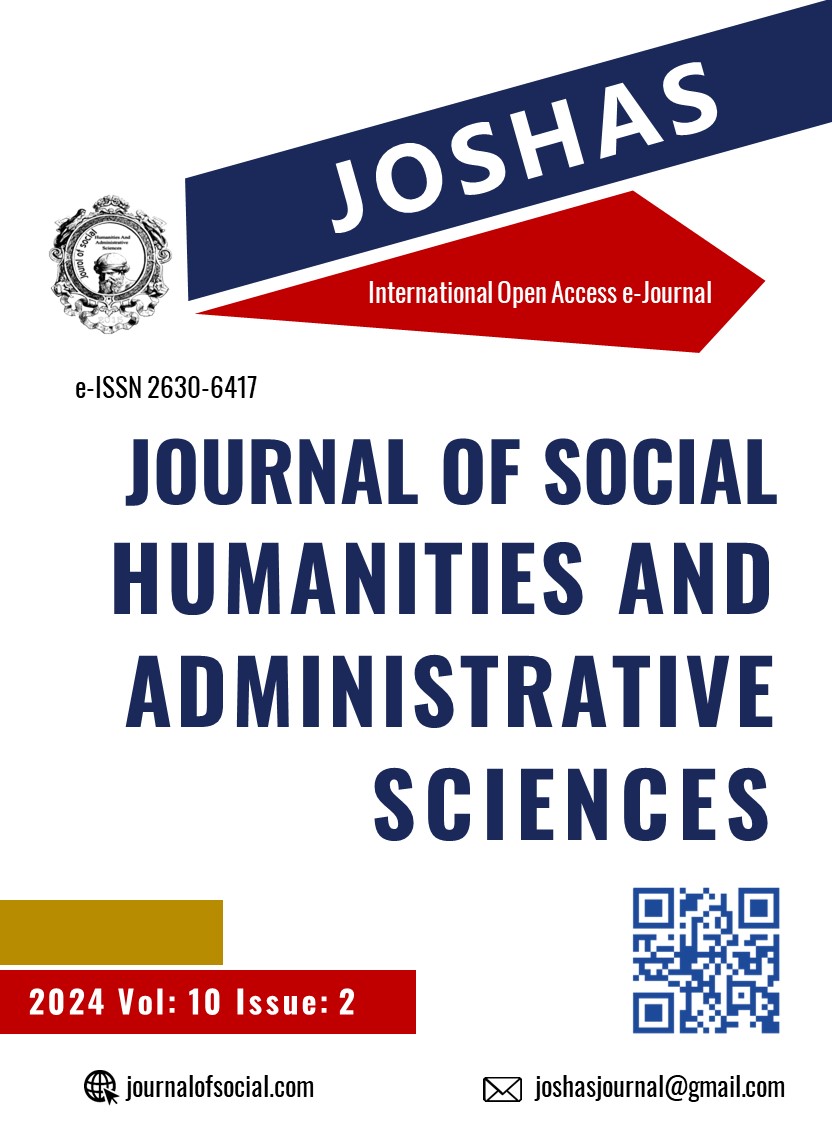Author :
Abstract
Yemek, biyolojik ihtiyaç olmanın yanı sıra sosyal bilimciler açısında da önemli bir olgudur. Öyle ki yemek sosyal bir gereksinimdir. Yemek kültürü üzerinde etkili birden çok parametrenin etkili olduğu düşünüldüğünde, bunların başında kültür ve ekonomik ögelerin geldiği görülür. Her toplumun geçmişten bugüne getirmiş olduğu kültürel birikimi, beslenme kültürünün oluşumunda ve gelişiminde etkilidir. Bu bağlamda çalışma kapsamında yerel yemek kültürünün küresel yemek kültürüne dönüşümünde etkili olan ekonomik, toplumsal, kültürel ve küresel ögelerin etkisi irdelenecektedir. Aynı zamanda küreselleşme ile ortaya çıkan küresel yemek zincirlerinin ve popüler kültürün küresel lezzet oluşumuna etkisine bakılacaktır. Küreselleşme, toplumsalın her anıda var olarak bütünsel bir dünya yaratmaktadır. Yaşadığımız küresel çağ içerisinde toplumların bireyselleştiği, tek tipleştiği ve tüketim nesnesi haline geldiğini ifade edecek olursak yeni toplumsal düzenin varlığından söz edebiliriz. Toplumsal yapı bu anlamda aile ve çevre ilişkileriyle şekillenen bireyin aidiyet duygusu geliştirdiği ilk sosyal alanlardır. Her alanda olduğu gibi yemek kültürü oluşumunda ait olunan toplumun yapısı yemek kültürünü şekillendirmektedir. Aidiyet tartışmasının ardından Deleuze ve Guattari’nin ortaya atmış olduğu “yersizyurtsuzlaşma” kavramı ile yerel yemek kültürünün durumu sorgulanmıştır. Çalışma kapsamında yerel yemek kültürünün yok olması gibi bir çarpıcı iddia söz konusu değildir. Aksine yerel ile küresel olanın iç içe girmesiyle ortaya çıkan “küyerelleşme” kavramı durumu çok güzel aydınlatmaktadır. Küresel yemek kültürü bazı açılardan yerel yemek kültürüne tehdit oluşturuyor gibi görülse de aslında yemek kültürü açısından melezleşmeden söz edilebilir. Bahsi geçen melezleşme çalışma içerisinde çok kültürlülük bağlamında tartışılmaya çalışılacaktır. Sonuç olarak çok kültürlü yapıya sahip yeni dünya düzeninin varlığından bahsetmek mümkündür. Bu anlamda dünyanın küresel köy haline geldiği ve buna yönelik yeni beslenme pratikleri oluşturduğu söylenebilir.
Keywords
Abstract
Food is not only a biological necessity but also a significant phenomenon from the perspective of social sciences. In fact, food is a social requirement. When considering the influential factors in the formation of culinary culture, culture and economic elements emerge as the foremost parameters. The cultural heritage that each society has brought from the past to the present plays a crucial role in the formation and development of dietary culture. In this context, the study will examine the impact of economic, social, cultural, and global elements on the transformation of local culinary culture into global culinary culture. Additionally, it will explore the influence of global food chains and popular culture on the formation of global flavors resulting from globalization. Globalization is creating a holistic world at every moment of social existence. In the global era we live in, societies are becoming individualized, standardized, and objects of consumption, indicating the existence of a new social order. In this sense, the social structure, shaped by family and environmental relationships, is the first social domain where individuals develop a sense of belonging. Just like in every other field, the structure of the society one belongs to shapes culinary culture formation. Following the discussion on belonging, the concept of "deterritorialization" proposed by Deleuze and Guattari has been raised to question the status of local culinary culture. The study does not claim a striking assertion like the disappearance of local culinary culture. On the contrary, the concept of "glocalization," resulting from the intertwining of local and global, sheds light on the situation. While global culinary culture may seem to pose a threat to local culinary culture in some aspects, it can be argued that there is hybridization in terms of culinary culture. This hybridization will be discussed within the context of multiculturalism in the study. In conclusion, it is possible to talk about the existence of a new world order with a multicultural structure. In this sense, it can be said that the world has become a global village, giving rise to new dietary practices.





